Millionaire Cartes elected Paraguayan president
Updated: 2013-04-22 11:48
(Xinhua)
|
||||||||
ASUNCION - Millionaire businessman Horacio Cartes has won Sunday's Paraguayan presidential elections, bringing the once long-ruling Colorado Party to power again since it was defeated in 2008 after more than six decades in power.
Paraguay's top electoral body, the Supreme Court of Electoral Justice (TSJE), announced Sunday evening that Cartes had beat runner-up Efrain Alegre of the ruling Liberal Party by nearly 10 percentage points, after ballots at 75 percent of voting stations were tabulated.
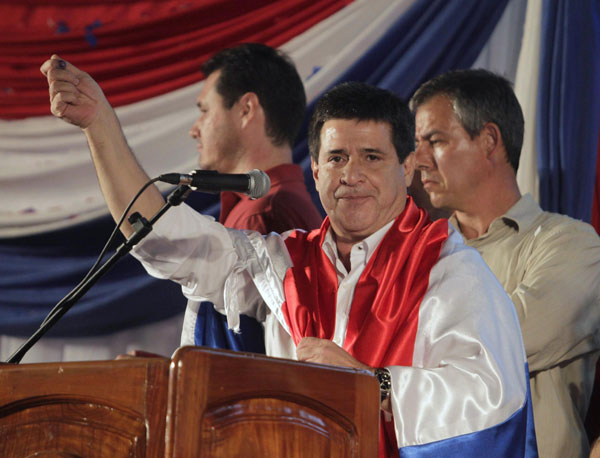 |
|
Paraguayan presidential candidate Horacio Cartes of the Colorado Party gestures before speaking to supporters as he claims victory in the election in Asuncion, April 21, 2013. Millionaire businessman Cartes won Paraguay's presidential election on Sunday, returning his powerful center-right Colorado Party to power after the left's brief spell ended in impeachment last year. [Photo/Agencies] |
Cartes garnered 45.93 percent of votes, while Alegre got 36.84 percent, the TSJE said.
About half an hour before the the TSJE was to announce the official results, Alegre conceded defeat, saying exit polls showed him trailing Cartes "by 5 to 7 points".
"Paraguayans have spoken," Alegre said, adding he considered the election process "suitable".
Cartes will take over the presidency from Liberal Party President Federico Franco, who as vice president rose to top power after former leftist President Fernando Lugo was ousted in June 2012.
Sunday's elections were the first since Lugo was ousted in a snap impeachment that took less than 48 hours.
His sudden removal by an overwhelmingly right-wing congress was considered a virtual coup by many of Paraguay's South American neighbors, and the country was suspended from regional trade bloc Mercosur for breaking democratic principles.
Despite 11 candidates running for the presidency, the presidential race was essentially between two conservatives after prominent leftist candidate Lino Oveido was killed when his helicopter crashed in February as his campaign was gaining momentum.
Cartes, 56, has promised to reform the corrupt ways of the Colorado Party and bring effective changes to a nation with 40 percent people in poverty.
Polling stations closed at 4 pm local time Sunday (2000 GMT) after a tranquil day of voting.
The head of an observer delegation from the Organization of American States (OAS), Oscar Arias, earlier described the election day as "very nice".
"It's turning into a very nice election day, everyone is out voting, there is a lot of calmness and the people are very tranquil, complying with the law since the polls opened," Arias told a Xinhua reporter while visiting a voting station in southeast Asuncion, Paraguay's capital.
The former Costa Rican president and Nobel Peace Prize-winner said the elections showed "Paraguay has made positive progress in recent years, as evident from the very normal way demonstrated in the electoral campaign, compared with other countries".
The last South American country to hold elections before Paraguay was Venezuela, where the death of former President Hugo Chavez led to a highly contested race whose outcome is still being disputed by the opposition.
"Remember that Paraguay is a young democracy," said Arias, adding that "I think the Supreme Court of Electoral Justice is a reliable agency and it should inspire calmness and confidence among the Paraguayan voters."
In the run-up to to Sunday's vote, several parties had questioned the new electronic ballot counting system that was used for the first time in Paraguay.
In addition to the OAS's 68-member delegation, other groups have also sent observer missions, including the European Union and two regional blocs, Unasur and Mercosur.
Paraguay's electoral body said shortly after polls closed Sunday that between 52 percent and 55 percent of the country's nearly 3.5 million eligible voters participated in the elections. By contrast, the 2008 elections that brought Lugo to power saw 65.48 percent participation.
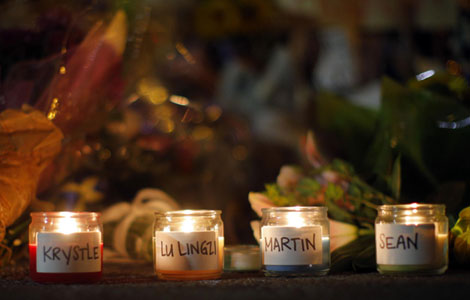
 Police: Bombing suspects planned more attacks
Police: Bombing suspects planned more attacks
 Premier: Rescue every person
Premier: Rescue every person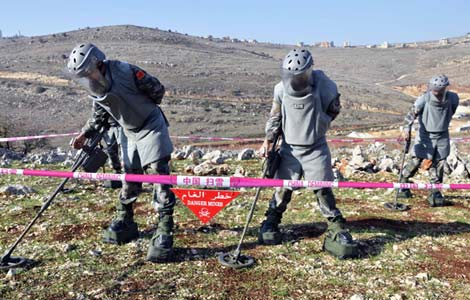
 Chinese soldiers clear mines, win hearts
Chinese soldiers clear mines, win hearts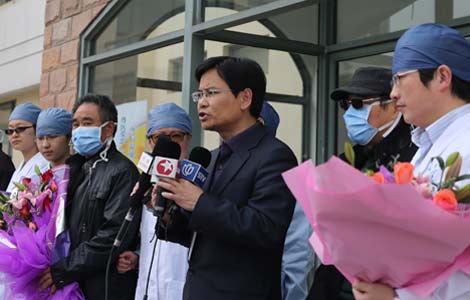
 More bird flu patients discharged
More bird flu patients discharged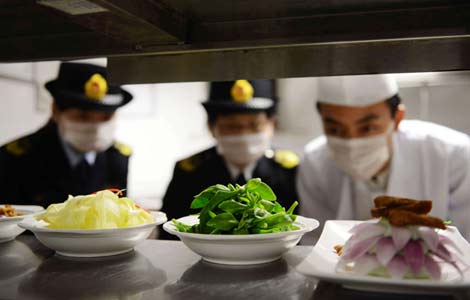
 Credibility still top concern for Chinese firms
Credibility still top concern for Chinese firms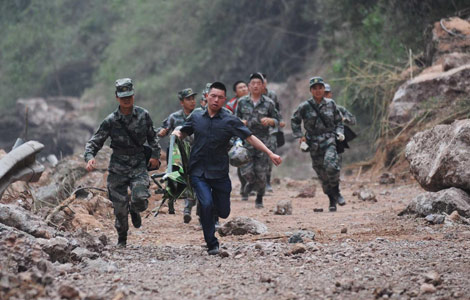
 Every second counts in rescue
Every second counts in rescue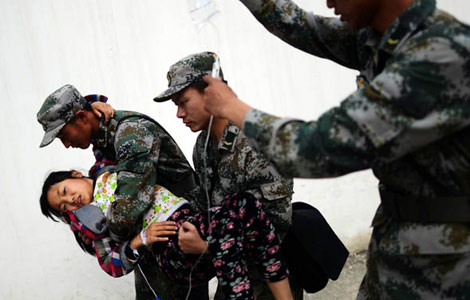
 Soldiers bring hope to earthquake-battered region
Soldiers bring hope to earthquake-battered region
 Chinese victims' families arrive in Boston
Chinese victims' families arrive in Boston
Most Viewed
Editor's Picks

|

|

|

|

|

|
Today's Top News
Investment patterns alter with times
Official promotes Beijing-Washington ties
Baoxing struggles to recover after quake
Chinese soldiers clear mines, win hearts
Intl scholarship puts China on the map
More bird flu patients discharged
Telecom workers restore links
Relief materials to reach quake zone
US Weekly

|

|






